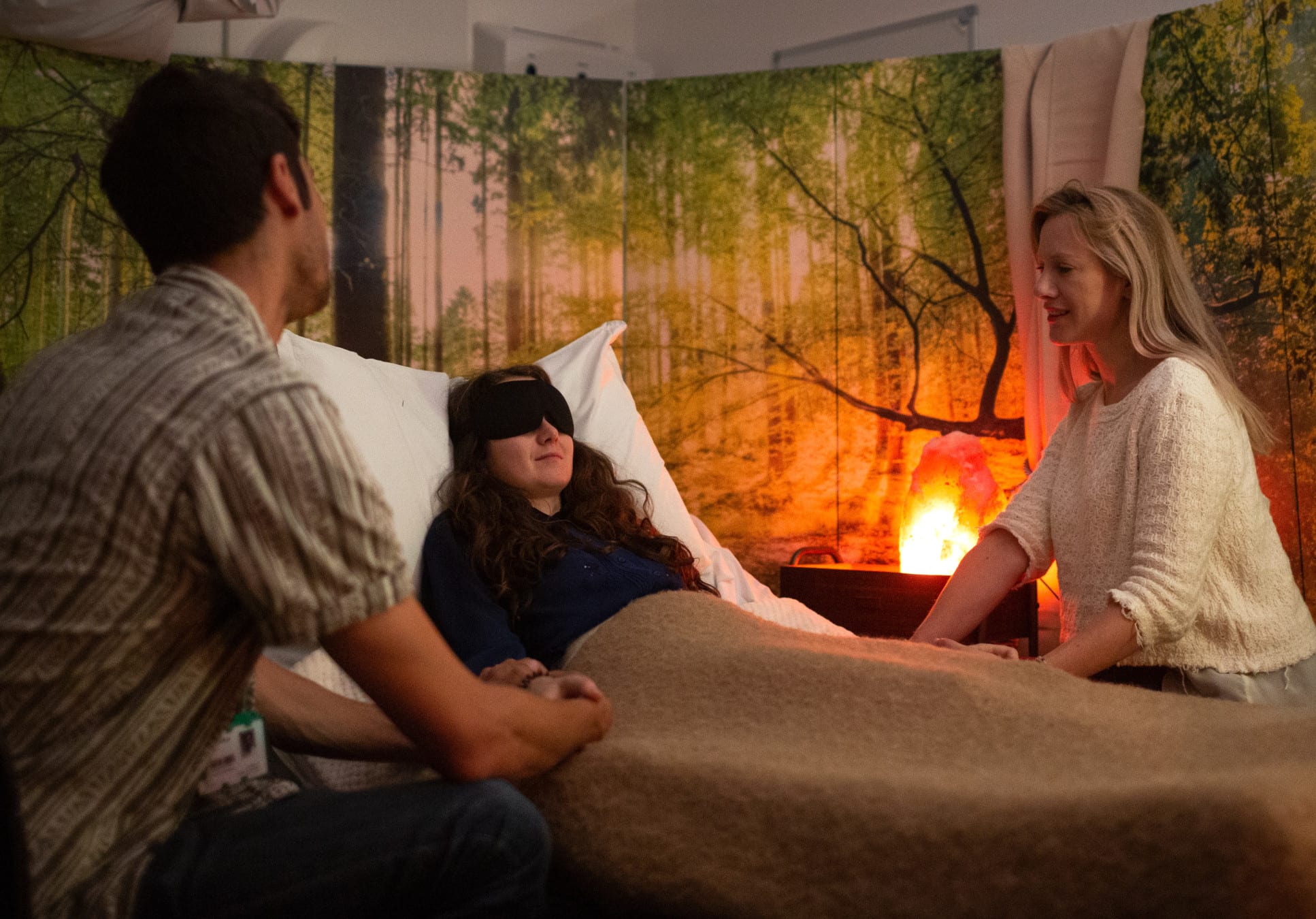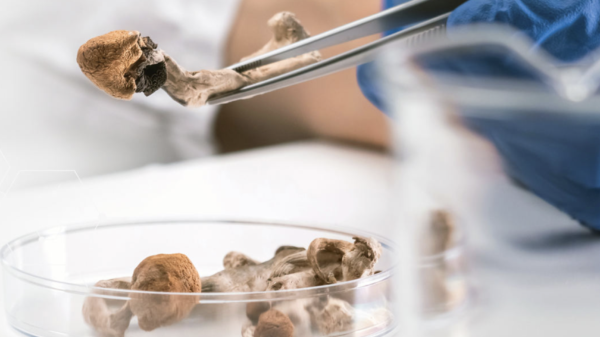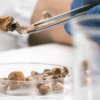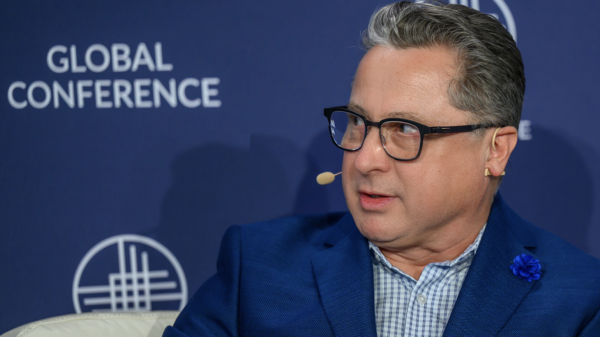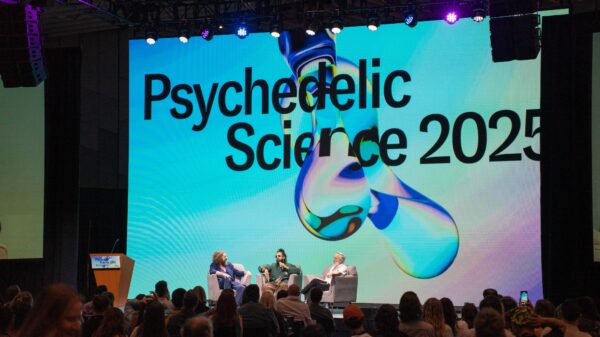Two doses of the psychedelic substance found in magic mushrooms treats depression as well as a leading antidepressant, a new small but rigorous study shows.
On Wednesday, results from the first randomized clinical trial to compare therapeutic doses of psilocybin with an existing treatment for severe depression was published in the The New England Journal of Medicine.
While emerging research shows that psychedelics can be used to treat mental health conditions, there’s been calls for more clinical trials to establish whether drugs like psilocybin can be an effective long-term treatment.
The new study conducted at the Imperial College of London showed that depression scores were reduced in all but one of the 59 participants.
But reductions occurred more quickly in the psilocybin group compared to the antidepressant group and were greater in magnitude.

Dr. Robin Carhart-Harris, head of the Centre for Psychedelic Research at the Imperial College of London. Photo by Thomas Angus
Although the researchers warn that larger clinical trials are needed, the study’s lead author says the results should give people hope for effective alternatives to selective serotonin re-uptake inhibitors.
“One of the most important aspects of this work is that people can clearly see the promise of properly delivered psilocybin therapy by viewing it compared with a more familiar, established treatment in the same study,” Dr. Robin Carhart-Harris said in a statement.
“Psilocybin performed very favourably in this head-to-head.”
Dr. Carhart-Harris, who’s head of the Centre for Psychedelic Research at Imperial, designed the study to compare six weeks of either psilocybin therapy or a commonly prescribed antidepressant to see which would yield better results.
The SSRI used was escitalopram, an antidepressant sold under brand names such as Cipralex and Lexapro.
Study pushes psilocybin closer to becoming licensed medicine
During the study, 30 volunteers with moderate-to-severe depression received two high doses of psilocybin three weeks apart and a daily placebo. The other 29 were given a very low dose of psilocybin and two rounds of escitalopram, the first at 10 milligrams and a second at the maximum daily dose of 20 milligrams.
For the psilocybin dosing sessions, participants received an oral dose of the drug while they listened to a curated music playlist and were guided through their experiences by a psychological support team. All volunteers in the study received the same level of psychological support.

Psilocybin used in the Imperial College of London trial, called COMP360, was provided by psychedelic firm Compass Pathways. Photo by Thomas Angus
People treated with psilocybin showed significant improvements across a range of subjective measures, including in their ability to feel pleasure and express emotions, reductions in anxiety and suicidal ideation, as well as increased feelings of wellbeing.
All participants were assessed using standardized scales of depressive symptom severity.
The main measure used, QIDS-SR-16, gauges depressive symptoms on a continuous scale ranging from 0–27, with higher scores indicating greater depression.
At the start of the trial, the mean score was 14.5 for the psilocybin group. But after six weeks, scores reduced by an average of 8 points.
About 70 per cent of the psilocybin group reported at least a 50 per cent drop in depression scores, compared to 48 per cent in the escitalopram group.
At week six, 57 per cent of those receiving psilocybin therapy reported a remission in symptoms, versus 28 per cent in the escitalopram group.
“In our study, psilocybin worked faster than escitalopram and was well tolerated, with a very different adverse effects profile,” lead investigator David Nutt said. “We look forward to further trials, which if positive should lead to psilocybin becoming a licensed medicine.”
Study’s limitations pave way for larger trials
While the findings are generally positive, the team notes that the absence of a straight placebo group, the short duration of the trial and the small number of participants limits conclusions about the effect of either treatment alone.

Psilocybin is the primary psychoactive substance found in so-called magic mushrooms. Photo by Jared Gnam
They add that the trial sample included mainly white males that were relatively well educated, which limits findings to more diverse populations.
It’s also difficult to create a psychedelic study that’s truly blind as patients are likely to figure out which group they’re in based on whether they experience the psychoactive effects of higher doses of drugs like psilocybin.
The authors warn that patients with depression shouldn’t attempt to self-medicate with psilocybin, as the absence of special clinical safeguards may not have a positive outcome.
But the findings do add to the growing body of research that suggest psychedelic drugs could be used in clinical settings to treat depression with lasting effects.
A small, but robust study of 27 adults conducted at Johns Hopkins University last year found that psilocybin was more effective at treating severe depression than traditional antidepressent medication.
Read more: Psilocybin therapy 4 times more effective than antidepressants: study
Read more: Nature amplifies therapeutic effects of psychedelics: study
Dr. Carhart-Harris says he hopes the results of his study at Imperial will spark further investigations and public conversations in the area of research.
“These latest finding build on our previous research testing psilocybin therapy for treatment resistant depression, and offer the most compelling evidence yet to support efforts towards licensing psilocybin therapy as a regulated mental health intervention.”
Top image by Thomas Angus via Imperial College of London
jared@mugglehead.com

